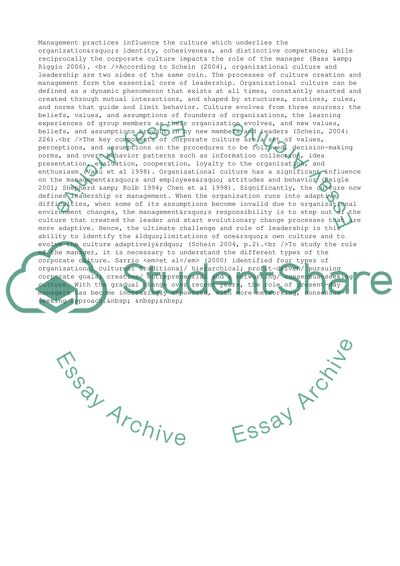Cite this document
(Organisational Culture and the Role of the Manager Coursework, n.d.)
Organisational Culture and the Role of the Manager Coursework. https://studentshare.org/management/1724617-people-in-organisation
Organisational Culture and the Role of the Manager Coursework. https://studentshare.org/management/1724617-people-in-organisation
(Organisational Culture and the Role of the Manager Coursework)
Organisational Culture and the Role of the Manager Coursework. https://studentshare.org/management/1724617-people-in-organisation.
Organisational Culture and the Role of the Manager Coursework. https://studentshare.org/management/1724617-people-in-organisation.
“Organisational Culture and the Role of the Manager Coursework”. https://studentshare.org/management/1724617-people-in-organisation.


